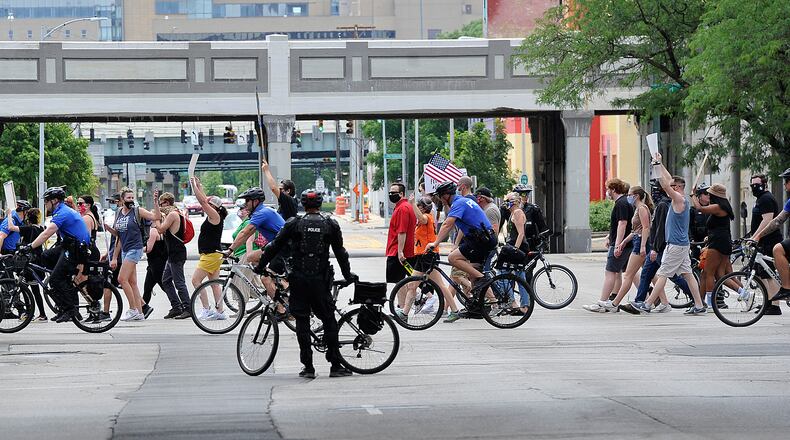RELATED: Dayton board frustrated with lack of police reforms
Each working group will be co-led by a city commissioner and community leader. The working groups and co-leaders are:
Oversight: Increase transparency in the process to report suspected police misconduct and strengthen the Citizen Appeal Board made up of community members. Co-leaders are Commissioner Matt Joseph and Montgomery County Recorder Brandon McClain.
Use of Force: Assess all recent incidences in which force was used by Dayton police to look for patterns and biases, which will inform a review of use of force policies. Co-leaders are Commissioner Jeffrey J. Mims Jr. and Willis Blackshear Jr.
Training: Continue implicit bias and de-escalation training for all Dayton police officers. Co-leaders are Commissioner Darryl Fairchild and Stacy Benson-Taylor.
Recruitment & Promotion: Review police recruitment, oversight and selection process to better identify any potential issues in new officers and increase diversity in the force. Co-leaders are Mayor Nan Whaley and Montgomery County Common Pleas Judge Gerald Parker.
Engagement: Continue to deepen community engagement by rank and file officers to strengthen relationships with the people they serve and protect. Co-leaders are Commissioner Chris Shaw and Shannon Isom.
MORE: Dayton community-police official resigns, cites frustration with DPD leaders
Working group members will include city residents, Dayton Police Department, Community Police Council members and people with expertise in the criminal justice system. The working groups will be supported by city staff, University of Dayton law students and staff from the Dayton Mediation Center, the release stated.
“Since the protests over George Floyd’s murder began, Daytonians have shown incredible passion and thoughtfulness about rooting out systemic racism in our community and in our police force,” Whaley stated in the release. “We are looking forward to creating the opportunity for Daytonians to work alongside Dayton police to shape policy for the police department that serves them.”
RELATED: Downtown Dayton opens up, cleans up after protests
The working groups will evaluate best practices, engage the broader community and make policy recommendations that will be evaluated by the Dayton City Commission and city administration.
While some policy changes may be enacted right away, the majority of the process is expected to occur over six to nine months. Regular reports from the working groups will be shared with the community, the city said.
About the Author
